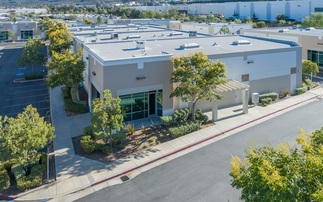Wrap Nucleus saw £725m of inflows in the six months to 30 June, with profits jumping 85% as the platform grew its market share.
Nucleus saw its inflows increase from £612m in the first half of 2013, helping the platform increase assets under administration by roughly a third compared to the same time last year, at £7bn. Turnover also climbed 26% year-on-year, to £11.1m.
The increase in inflows and AUM drove a huge jump in first half operating profit, which hit £1m. If the platform's growth continues at the same pace for the rest of the year, profits look set to eclipse last full year's £1.7m.
Chief executive David Ferguson added July - outside the scope of the report - was Nucleus' best ever month for gross inflows: "This performance comes during a period when we have implemented the biggest technology upgrade we have undertaken in our eight year history.
"While we have experienced some inevitable issues we are working hard to get these quickly behind us and we will then be beautifully poised for the next phase of our growth."
The results counter suggestions by competitor Ascentric that 2014 had got off to a slow start, after it reported a 20% drop in new business earlier this week.
Dismissing suggestions from other providers that it has been a quiet start to the year for platforms, Barry Neilson said: "We have actually found it a very busy year. All the key metrics are healthy."
Neilson said the group - which is now taking advantage of a software upgrade to roll out its own annuity service allowing advisers to pull up annuity quotes and select products - has also increased its market share.
Neilson added the group is still in ongoing discussions with advisers about a white-label service, which will help advisers deal with clients who no longer want face-to-face advice.
In January, Investment Week reported how Nucleus is considering launching a direct-to-consumer (D2C) platform in an effort to better serve the 6,000 orphaned clients it currently redirects to Hargreaves Lansdown each year.
Nucleus is currently an IFA-only platform, owned in part by its member firms, but it has identified a need to branch out into the D2C space in order to tackle the problem of orphaned clients.
With IFAs increasingly concentrating on higher net worth individuals, platform providers have been left to deal with the resulting orphaned clients, whose assets remain on those platforms.
Ferguson said the plans are in the early stages but acknowledged the platform needs to address the issue of orphaned clients. "There is a problem to be solved. We are in discussions with users about it," he said.












